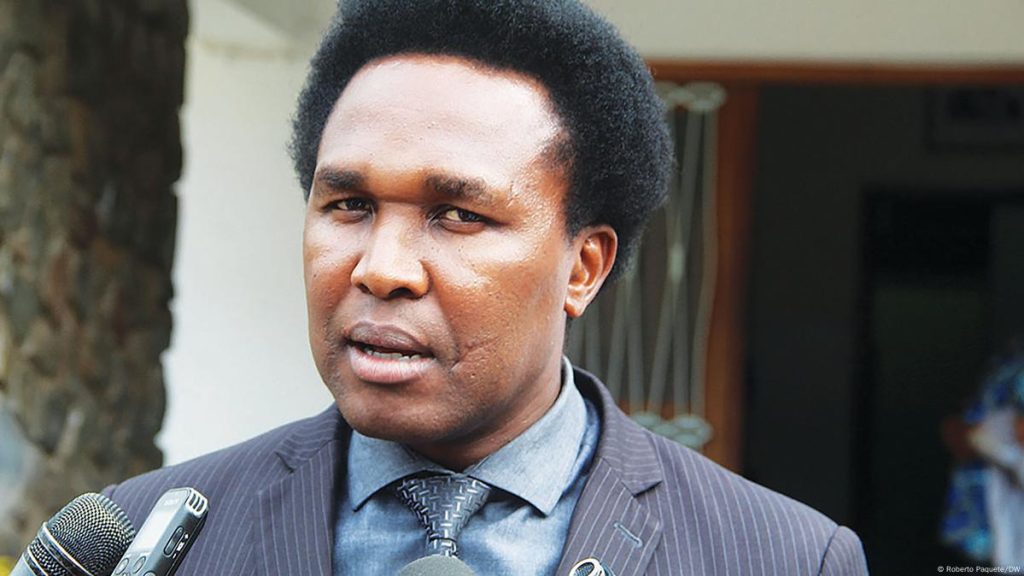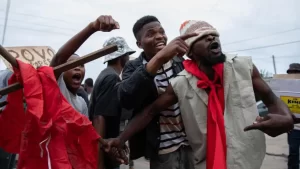Mozambique social media restricted as runner-up in hiding
3 min read
In hiding … Venâncio Mondlane, an independent candidate who insists he was the true winner of the disputed poll, continues to call for protests from his hide-out

In hiding … Venâncio Mondlane, an independent candidate who insists he was the true winner of the disputed poll, continues to call for protests from his hide-out
In Mozambique, social media access has been restricted as tensions rise following last month’s contentious elections. Venâncio Mondlane, a prominent independent candidate who claims he was the rightful winner, has gone into hiding and is urging his supporters to protest the official results, which declared victory for Daniel Chapo of the ruling Frelimo party.
Authorities believe Mondlane is currently in South Africa. From his undisclosed location, he has released videos on social media, calling for demonstrations over the next week against the electoral outcome. His disappearance from public view occurred shortly after two of his aides were shot dead, a situation Mondlane attributes to political motivations. The government, however, has denied these allegations.
Mondlane’s decision to go into hiding came 12 days ago, following threats he claims were made against him by police. He reported that his home was surrounded by law enforcement and that he had been tear-gassed during protests related to the murders of his lawyer, Elvino Dias, and Paulo Guambe, an official from the opposition Podemos party.
Protests erupted after the election results were announced last Thursday, leading to violent clashes. According to a report from the Order of Doctors, an independent medical association, at least 10 people have died due to gunfire from security forces, while many others have sustained non-fatal injuries.
Police chief Bernardino Rafael refuted Mondlane’s claims, stating that officers were dispatched to manage 58 protests, 38 of which he described as “very violent.” As tensions escalated, internet watchdog NetBlocks reported that restrictions on social media platforms such as WhatsApp, Facebook, and Instagram began on Thursday, coinciding with the unrest. Mobile data services have also faced disruptions, particularly after the election on October 9, leaving many residents unable to communicate effectively.
The government has not responded to allegations of intentionally limiting internet access to hinder protest coordination. Daniel Chapo, the president-elect, will succeed Filipe Nyusi, who is stepping down after completing two terms in office. Frelimo has maintained a firm grip on power since Mozambique gained independence from Portugal.

Official election results indicated that Chapo secured 71% of the vote, while Mondlane received 20%, and Ossufo Momade from the former rebel group Renamo came in third with 6%. However, the legitimacy of these results is being contested in the Constitutional Court by Podemos, the party supporting Mondlane. International observers have also raised concerns about the election’s integrity, citing manipulated figures and irregularities in the vote counting process.
In a recent meeting with police chief Rafael, Podemos leader Albino Forquilha urged for transparent investigations to restore faith in the electoral process, emphasizing the need for justice to honor the will of the Mozambican people.
As of Friday, relative calm has returned to the capital, Maputo, and other cities following days of protests. Some businesses that had closed due to unrest are gradually reopening, though many report a sharp decline in customer traffic. The president of the national trade association, CTA, remarked that the economic fallout from the protests has been “worse than Covid-19,” particularly as the nation grapples with high unemployment rates, especially among the youth.
Despite the easing of tensions, many Mozambicans remain hesitant to return to work due to safety concerns and limited public transport options. Schools continue to operate, but attendance is noticeably lower.
In his calls for action, Mondlane has urged industries to participate in a week-long “paralysis,” asserting that “seven days without work are better than five years of misery.” He has also encouraged supporters to “occupy” the presidential palace and other key locations in the capital to amplify their demands.
As the situation in Mozambique develops, the challenges surrounding electoral integrity, civil liberties, and public safety remain at the forefront of national discourse, with the potential for further unrest if grievances are not addressed.